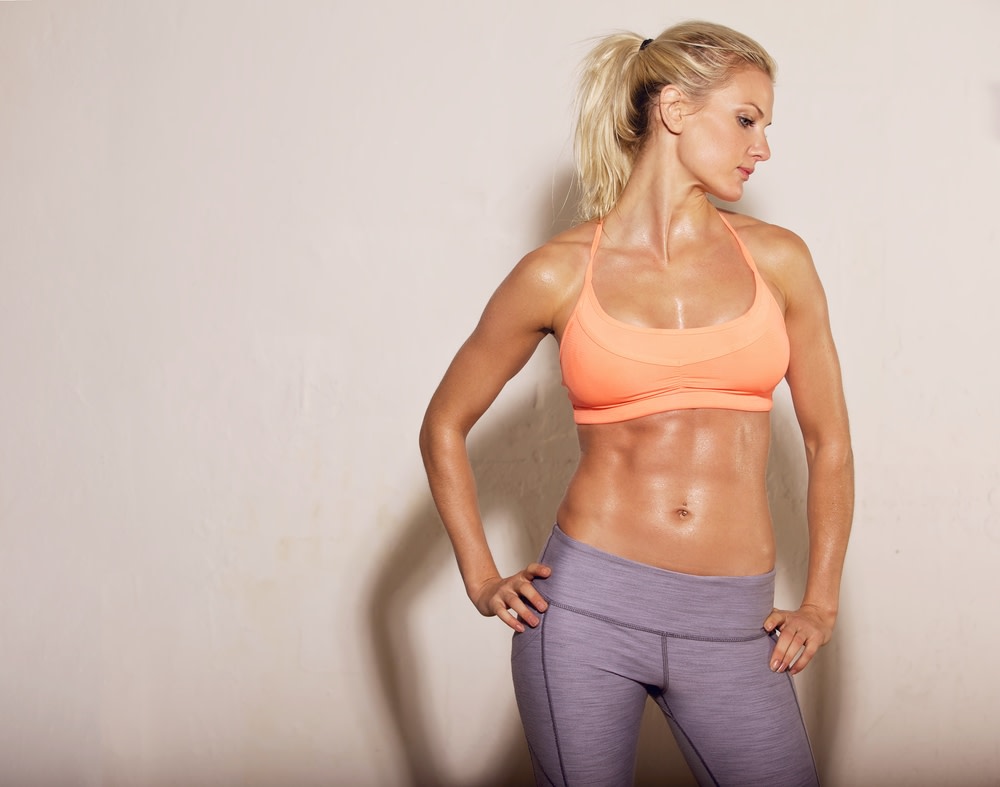The "Perfect" Body: Fitness Inspiration or Unobtainable Deception?

Image: Shutterstock
Barre3 founder and owner Sadie Lincoln recently took to her blog to discuss issues of body image, beauty standards, and Photoshopping in the fitness world, after participating in a photo shoot where images were digitally manipulated without her knowledge. “The fitness industry has come up with a very specific—and unrealistic—image of what health and beauty look like,” she writes. She notes that in one picture, photographers “slimmed me here and padded me out there,” smoothed her skin to a waxy sheen, and changed her eye color. “I often say that Barre3 is about feeling really good in your own skin, so the fact that they literally changed my skin made my heart sink.” She goes on to express frustration with the fact that even she, as a fitness professional, isn’t considered to have a marketable body, showing how unrealistic media-fed standards of beauty truly are, and concludes:
"As someone who runs a fitness brand, I’m committed to showing real people in photos for Barre3, whether for promotional materials or on our blog. We want the images we promote to match our motto: honor your truth. And what should you hold up as your healthy ideal? Your own body. It’s great to learn from the experts, but don’t aspire to be them (and certainly not the fake version of them). I encourage you to exercise and eat well to achieve your best self—not someone else’s—both in body and mind. I’ll be right there with you, beautiful wrinkles and all."
Yet there’s some tension between Lincoln’s thoughts on body image and her business. Despite the emphasis on holistic health, Barre3 also sells the promise that their workouts will transform clients’ bodies, explaining on their website that programs are designed to “shape, lift, and tone,” and noting that “the benefits clients are most excited about is losing inches around their waists, hips, thighs, and upper arms.” In short, Barre3—like the vast majority of the fitness industry—is, in part, about helping people change a body they’re dissatisfied with. The fitness industry, like Hollywood and the designer fashion world, necessarily promotes, and profits from, our negative feelings about our own bodies. The question is, should fitness professionals get a pass because they do so in the name of encouraging consumers to live a healthy lifestyle?
Another local fitness professional, Ashleigh Kayser of Refinery PDX, disagrees with Lincoln on several points, saying she sees perfected images in the media as aspirational. “I look at the Athleta models,” for example, “and I find them inspiring. It pushes me to work harder.” At the same time, she says she practices a functionality-centered approach to fitness that emphasizes how clients feel rather than how they look. “It’s hard to meet your fitness goals if they’re primarily motivated by vanity; people might walk in for those reasons, but within a few workouts, they change their approach.”
Despite her focus on performance, Kayser notes that fitness professionals have to look a certain way to succeed in their industry. Although she’s never had Lincoln’s experience with a digitally-enhanced photo shoot, she says she wouldn’t mind having her skin, for example, perfected for images in promotional materials.
As far as the effects such images might have on women’s body image, Kayser notes that “the media is so pervasive, I don’t think people know they’re being affected,” but doesn’t view media beauty standards as irredeemably harmful, pointing out the increased prevalence of plus-size models.
At the other end of the spectrum is Leah Franklin, the local nurse behind new Portland gym Health Club, which she describes as a "body-positive barbell gym." Franklin sees the entire notion of fitness, as sold by the fitness industry, as potentially harmful, and wants to call into question ideas of health that focus solely on the body. “People should only live a healthy lifestyle insofar as it’s defined broadly, to include not just physical, but also emotional, spiritual, and community health,” she explains. “Even if we can recognize that fitness is good for us, even going into a gym can be very anxiety-provoking for many people, which obviously is bad for your health.”
Where most gyms sell themselves, at least in part, by promising to help clients lose weight, Health Club, which is slated to open this fall, will practice Health at Every Size (HAES), “a framework for health that is grounded in social justice.” Rather than defining health or fitness as a specific BMI, HAES emphasizes “weight inclusivity, health enhancement, respectful care, eating for well-being, and life-enhancing movement.” To those ends, Franklin says barbell training not only makes people stronger, but can also help them sleep better, respond more adaptively to stress, and, ultimately, to love their bodies.
When it comes to the issue of body image and the media, Franklin says that even as someone who’s considered herself a “body-positive feminist” since she was a teenager, she’s personally struggled with ubiquitous messages prescribing narrow standards of health and beauty. “That goes to show how much of an uphill battle it is, and that’s why it’s important to show an alternative paradigm that shows all kinds of bodies to the public.”




